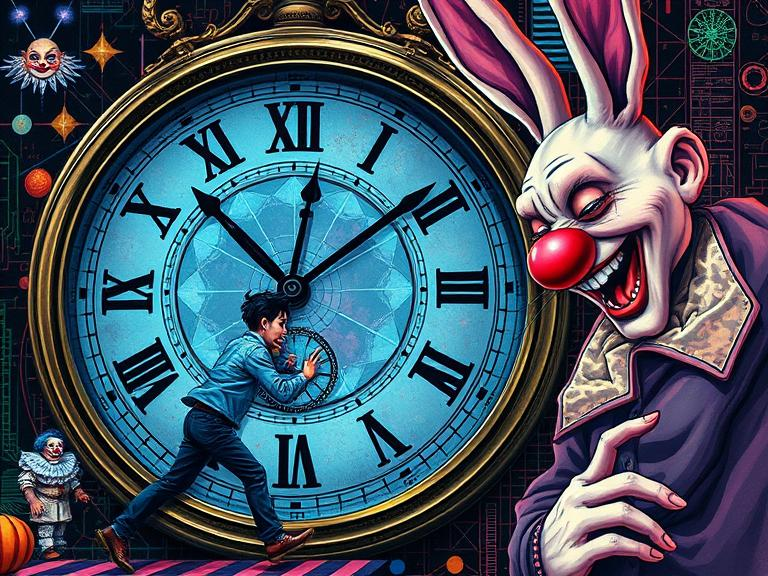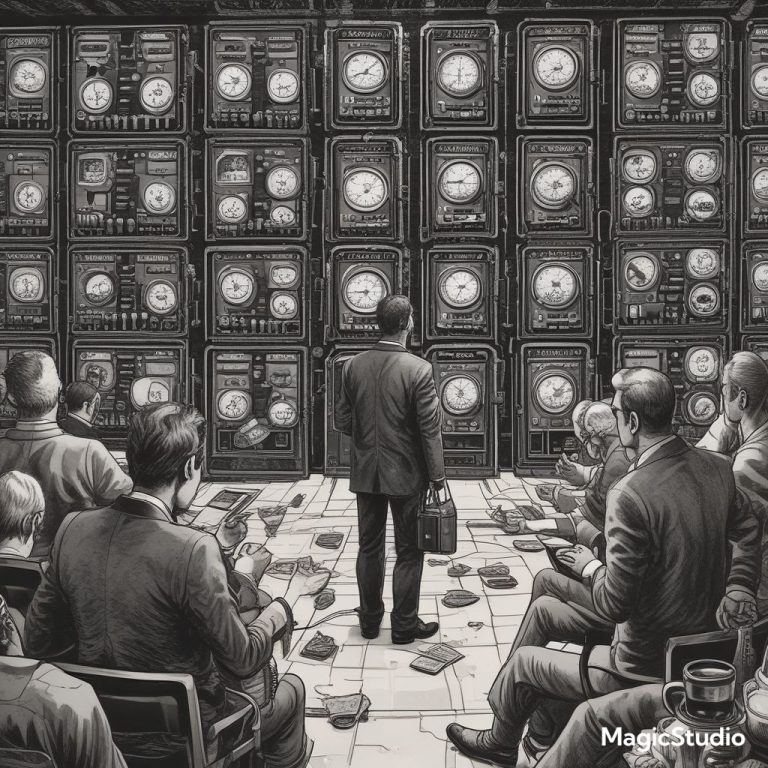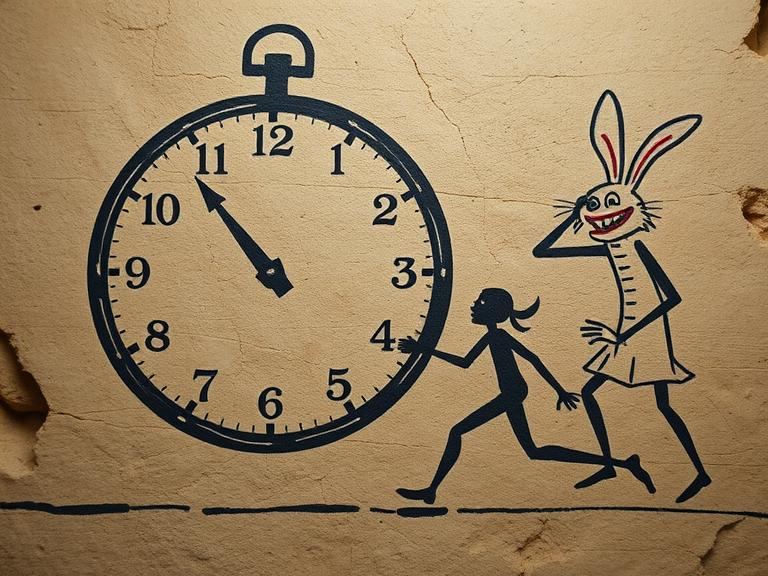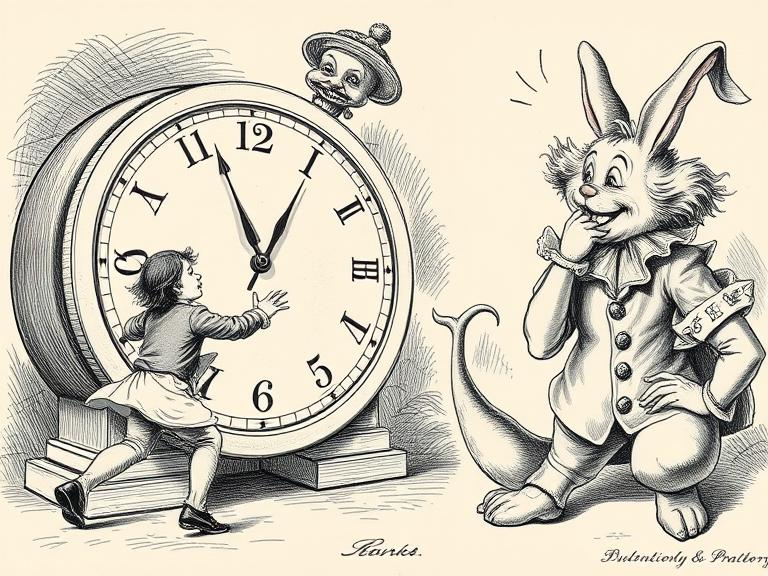
You think you’re immune, right? You’re savvy. You fast-forward through the commercials, you use ad-blockers, you scoff at the billboards. Cute. Real cute. But you’re soaking in it. It’s the cultural smog we all breathe. And these techniques they use? They’re not just clever salesmanship. They are classic, time-tested confidence tricks, polished to a mirror shine and deployed with scientific precision. I should know; the basic structure ain’t that different from hustles I’ve seen (or, uh, heard about) run with far less overhead.
Let’s start with the granddaddy, the panic button they love to push: “Limited Time Offer! Sale Ends Sunday! While Supplies Last!”

Sound familiar? Of course it does. It’s everywhere. Why? Because it works like a charm. It’s the oldest trick in the hustler’s handbook: Artificial Urgency. See, when you feel pressured to act now, your rational brain takes a backseat. That careful consideration? That pause where you ask yourself, “Do I actually need another singing fish plaque?” Poof. Gone. Replaced by a jolt of pure, unadulterated FOMO – Fear Of Missing Out.
It’s the same reason the street vendor selling “genuine” Rolexes for fifty bucks glances over his shoulder and whispers, “Police might come, gotta sell quick!” Or why the high-pressure salesman tells you the “special discount” is only valid if you sign today. They’re short-circuiting your bullshit detector by manufacturing a crisis. Madison Avenue just does it with focus-grouped fonts and jingles that burrow into your skull like a tick. They create the illusion of scarcity, even if the warehouse is overflowing with the junk. They know that the fear of missing a “deal” is often stronger than the desire for the actual product. You’re not buying a thing; you’re buying relief from the anxiety they just injected into your bloodstream. Slick, huh?

Then there’s the echo chamber routine: “Join Millions of Satisfied Customers!” “The Choice of Doctors Everywhere!” “See What Everyone’s Talking About!”
This is Social Proof, and it’s the advertising equivalent of the shills I talked about with the Shell Game. Remember them? The guys planted in the crowd to “win” and make the game look legit? Same principle. When you see that commercial showing hordes of happy, attractive people frolicking because they bought the right brand of toilet paper, or when an influencer you vaguely follow gushes about a miracle face cream (conveniently forgetting to mention the hefty paycheck behind the post), they’re banking on your innate desire to belong, to follow the herd.
Your lizard brain whispers, “If everyone is doing it, it must be good/safe/smart.” It’s a cognitive shortcut. Saves thinking. Unfortunately, it also saves you from noticing that the “millions satisfied” might be inflated, the “doctors” might be actors in lab coats (or maybe one chiropractor who likes the product), and “what everyone’s talking about” might just be a manufactured trend pushed by a hefty ad spend. It’s a numbers game, designed to make you feel weird or left out if you don’t jump on the bandwagon. They create the crowd, then convince you to join it. Classic misdirection.

And let’s not forget the borrowed halo: “As Recommended By Experts…” “The Official [Whatever] of the [Some Prestigious Sounding Event]” featuring some serious-looking dude in glasses or a celebrity flashing perfect teeth.
This is Authority Bias. We’re wired to trust perceived experts and authority figures. The con artist knows this. That’s why they might flash a fake badge, wear a convincing uniform, or drop impressive-sounding jargon. Madison Avenue does the same, just… legally. They rent authority. They pay a scientist (carefully selected, natch) to endorse their sugary cereal’s “essential vitamins.” They pay a movie star, whose actual expertise lies in pretending to be someone else, to tell you which car embodies “rugged individualism.”
It’s about transference. You trust the expert (or the celebrity’s image), so you transfer that trust to the product. It doesn’t matter if the “expert” is speaking outside their field or if the celebrity wouldn’t use the product if you paid them (well, besides the endorsement fee). The appearance of authority is enough to bypass critical thinking for a lot of folks. It’s like Frank Abagnale said – the uniform, the presentation, that’s often enough. These guys just swapped the pilot’s outfit for a lab coat or a million-dollar smile.

George Carlin used to rail against the softening language, the euphemisms politicians and corporations use to hide ugly truths. Advertising is the undisputed champion of this. They don’t sell “sugar water”; they sell “refreshment,” “happiness,” “a moment of connection.” They don’t sell “overpriced electronics designed to break in two years”; they sell “innovation,” “lifestyle,” “the future.” They use emotional appeals – happy families, sexy encounters, nostalgic music – to create associations. You’re not buying soap; you’re buying the feeling of being clean, desirable, successful. They’re selling you your own aspirations back to you, shrink-wrapped with a logo.
It’s a system, people. A giant, gleaming, relentlessly cheerful confidence game designed to separate you from your money by exploiting your basic human wiring: your fears, your desires, your shortcuts in thinking. Consumerism isn’t just about buying stuff; it’s about buying into the story they’re selling. The story that this next purchase will be the one that makes you happy, complete, secure. It’s a treadmill powered by manufactured dissatisfaction.

Think about it: they spend billions figuring out how to push your buttons, how to bypass your logic, how to make you crave things you didn’t even know existed five minutes ago. It’s the ultimate long con. They’re not just picking your pocket on one transaction; they’re conditioning you for a lifetime of transactions.
So, the next time you see that “Limited Time Offer,” or feel that urge to buy something because “everyone” has it, or because some smiling famous face told you to? Just pause. Take a breath. Ask yourself: Who benefits from me feeling this urgency? Who benefits from me believing this claim? Is this a genuine need, or just a well-crafted illusion designed to trigger an impulse?
Recognize the game. See the mechanics behind the curtain. It might not stop you from buying things entirely – hell, even I own stuff – but maybe, just maybe, you’ll stop being such an easy mark. And trust me, in this world flooded with slick salesmen promising salvation in a bottle or a gadget, not being an easy mark? That’s damn near a superpower. Now, if you’ll excuse me, I saw an ad for a self-stirring mug… just kidding. Mostly.
